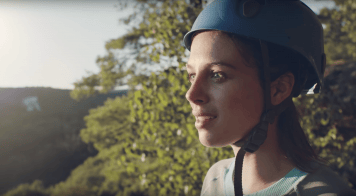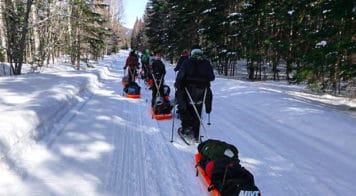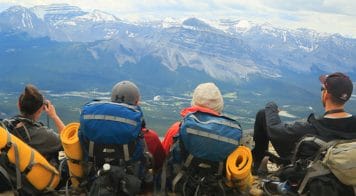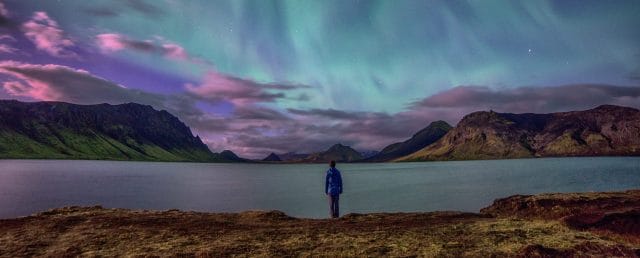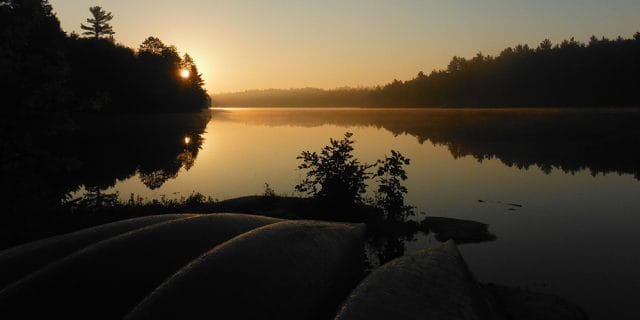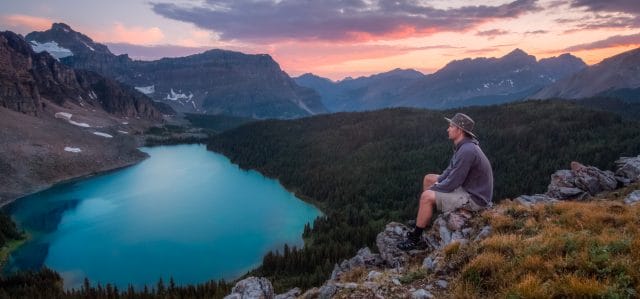Creating Community on Course: Reflections from A Queer Leader in the Outdoors Sector
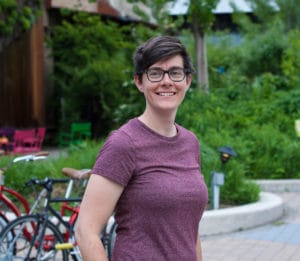 Over the past six years, I‘ve been a part of a team at Outward Bound Canada striving to better serve 2SLGBTQ+ youth. This action was fueled by my own experience as a queer woman: I saw the chance to provide an opportunity for those who may feel like they do not belong, and create a space where they may thrive.
Over the past six years, I‘ve been a part of a team at Outward Bound Canada striving to better serve 2SLGBTQ+ youth. This action was fueled by my own experience as a queer woman: I saw the chance to provide an opportunity for those who may feel like they do not belong, and create a space where they may thrive.
There is much debate over the value of affinity spaces (where everyone has a shared experience and identity), rather than an integrated space (where everyone is different). In 2021, on our inaugural expedition for 2SLGBTQ+ youth in Ontario, the affinity space was a highlight for all of the youth. Many of the students on the expedition shared with their Instructors that they hadn’t been in this kind of space before. Specifically, they felt that they could be themselves fully like they never had before.
Now, how do you describe this to someone who hasn’t felt othered before? That is a challenging message to convey without sharing my own personal vulnerability.
I have short hair. I dress in a “non-feminine” way (but what does that really mean?). People in public spaces make assumptions about me because of how I present. My gender is questioned when I am in a public bathroom, something I combat with forced confidence and friendliness in hopes that my smile and voice will assure people that they are in the right place (not that I am, I know I am!). This has led to questions in some workplaces I have had in the past: because I don’t wear skirts or earrings, is my wardrobe suited to a business casual environment?
These are only two examples of instances that have left me with some permanently learned behaviours to adapt. This is an invisible weight I carry with me because of my lived experience. I’ll leave it to you to imagine worse examples, and the lasting impacts of those on people in the community, and emphasized when you consider intersectionality.
With the rise in awareness as well as action to improve society around diversity, equity, inclusion, access and belonging, I have noticed a shift in the world around me and inside me. Providing these affinity spaces for youth is key to allowing them to experience a space where this weight can be removed.
If youth are growing up in a stressed environment where they feel they do not belong, or where they feel they constantly have to be ready to adapt or respond in ways that make others feel comfortable, they are not able to fully thrive. If we at OBC can strive to take away those stressors on our expeditions, and allow them to have a shared experience with similar youth, or in a space with other youth, then we are doing a service to ensure that they do not have the same experience that those who came before me have had.
OBC has been serving queer youth for decades and with an increased focus on diversity, equity, inclusion and belonging the opportunity to serve more youth and create spaces that better serve these youth is highlighted. The experience of queer people globally is rife with challenges. This is not a historical experience but a current one.
I’ve been fortunate to hear stories from students, staff, parents, and other OBC supporters about the impact of these programs, and I feel honoured to be on the leadership team at OBC, bringing my perspective and advocacy to the table.
I personally look forward to a world where queer youth can use a public bathroom, stress-free… until then, outhouses and thunder boxes remain great gender-neutral spaces!
Written by Marika Chandler
